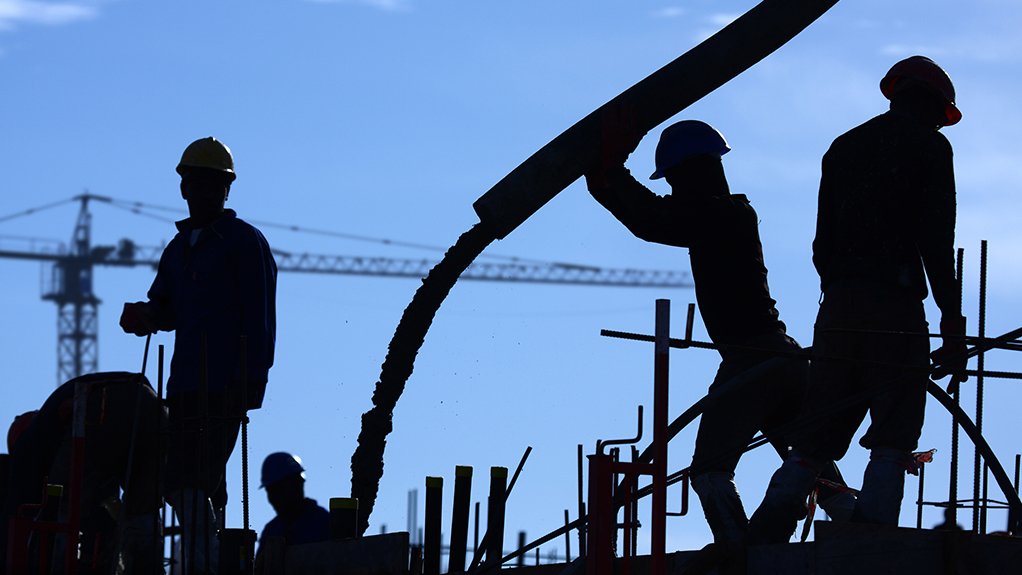Since its establishment in 2021, risk mitigation solutions provider Africa Speciality Risk (ASR) has set its sights on consolidating its underwriting activities in South Africa as part of its developing in the African insurance construction space.
The company highlights that it has made “real progress” towards achieving that goal in just under two years.
Further plans for development include establishing a footprint in neighbouring countries, as well as numerous Francophone and West African countries, over the next few years, with a particular focus on Côte d’Ivoire, Nigeria and Morocco.
These three countries in particular boast growing economies and construction industries, leading to an increased demand for construction insurance products to support the large-scale infrastructure projects in progress or planned.
Additionally, these countries benefit from a stable political environment, regulatory support and a favourable business climate.
“We currently have offices in the UK and Mauritius, along with a presence in Kenya,” says ASR construction head James Cronje.
Construction is a crucial business line for ASR and its goal of assisting in closing the infrastructure gap and catalysing transformational growth.
Further, the company offers a range of corporate and specialty reinsurance coverage across nine business lines.
ASR’s construction underwriting division specialises in writing reinsurance; therefore, the majority of its clients are brokers and insurance companies, adds Cronje.
“We provide coverage for a full spectrum of construction projects, including civil infrastructure, offshore projects, and oil and gas processing facilities,” he says.
Additionally, ASR’s capacity to support large projects extends to power plants, airports, marine terminals and railways, with coverage spanning from the initial investment phase with protection offered in the form of political risk insurance, trade credit and construction, to political violence, terrorism, property, energy, liability, kidnapping and ransom risks, as well as parametric risks.
Cronje points out that there is no particular uniqueness in insuring projects in Africa from an engineering standpoint, compared with those in other geographies.
“However, certain territories can sometimes offer differential rates and terms based on exposure and propensity to natural catastrophes.”
Most challenges have carried over from the global Covid-19 pandemic, including delays in investment sign off, but Cronje suggests that the number of projects in the market will normalise within the next two to three years.
Another key challenge is that certain regions are still trying to standardise placement processes.
“We believe that our greatest impact can be made in countries with developing insurance markets as opposed to those of the UK or the US,” he says.
ASR’s insurance products are specifically designed to be relevant to markets in the earlier stages of development, and the company does not consider these markets riskier, it just considers additional factors when evaluating the level of risk.
Project Planning
“Our involvement in these projects typically comes towards the end of the planning stages, once the project is fully financed and all engineering designs and plans have been made,” says ASR construction underwriter Maxwell Akpobasah.
Since most of these projects are developed over the longer term, ASR has the opportunity to partner with clients for extended periods.
“We have been instrumental in the development and expansion of an underground mine in Botswana,” he enthuses.
Assessing the complex project included gaining an understanding of not only all the regular elements of pricing a risk but also the experience of the management team, local geology and options associated with subcontracting, as well as the client’s overall risk profile.
Moreover, the timeframe of the project and risks of delays had to be considered, along with the protection required to cover future revenues.
The adequacy of risk management practices to minimise the risk of physical loss or damage and associated delays was also evaluated.
Akpobasah highlights that water damage and flooding pose the most significant risk to any construction project.
Further, the frequency of losses, owing to secondary perils, is increasing as a result of climate change and a growing population in affected areas, but increased data availability can help mitigate these risks.
Akpobasah concludes that it is crucial for clients to engage with their brokers and insurers as early as possible in a project to better understand local market conditions and pricing.
Edited by: Nadine James
Features Deputy Editor
EMAIL THIS ARTICLE SAVE THIS ARTICLE
ARTICLE ENQUIRY
To subscribe email subscriptions@creamermedia.co.za or click here
To advertise email advertising@creamermedia.co.za or click here













